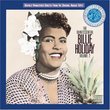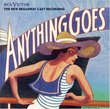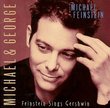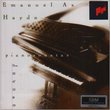| All Artists: Ludwig van Beethoven, Leonard Bernstein, Aaron Copland, George Gershwin, Franz Joseph Haydn, Charles Ives, Gustav Mahler, Dmitry Shostakovich, Jean Sibelius, Igor Stravinsky, New York Philharmonic, Columbia Symphony Orchestra Title: The Original Jacket Collection: Leonard Bernstein Members Wishing: 1 Total Copies: 0 Label: Sony Release Date: 12/4/2001 Album Type: Box set, Limited Edition Genres: Dance & Electronic, Special Interest, Classical Styles: Ballets & Dances, Ballets, Chamber Music, Forms & Genres, Concertos, Theatrical, Incidental & Program Music, Historical Periods, Classical (c.1770-1830), Modern, 20th, & 21st Century, Instruments, Keyboard, Symphonies Number of Discs: 10 SwapaCD Credits: 10 UPC: 696998975026 |
Search - Ludwig van Beethoven, Leonard Bernstein, Aaron Copland :: The Original Jacket Collection: Leonard Bernstein
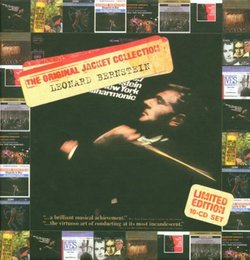 | Ludwig van Beethoven, Leonard Bernstein, Aaron Copland The Original Jacket Collection: Leonard Bernstein Genres: Dance & Electronic, Special Interest, Classical
|
Larger Image |
CD DetailsSimilarly Requested CDs
|
CD ReviewsA Fascinating Overview of Bernstein's Art D. J. Zabriskie | Park Ridge, NJ USA | 05/16/2004 (4 out of 5 stars) "This collection not only provides a fascinating overview of the art of Leonard Bernstein, it also provides one with a fairly comprehensive view of what Lenny and the controversy surrounding his music making were all about.All of the recordings here are with Bernstein conducting the New York Philharmonic, which for my money, is by far the more interesting part of his career. As he got older, Lenny tended to go "molto" more often, take tempoes slower and, generally, conduct with more self-indulgence than he did at this stage of things, when he was both more daring and more studious. The music contained here gives some idea of the range of Bernstein's scope, and it is remarkable: from Haydn to Ives, from Beethoven to Leonard Bernstein.To start things off, there is one of the best performances of Beethoven's "Eroica" symphony on record, a wonderful document of just how excellent an orchestra the New York Philharmonic could be when they wanted to be. Lenny's reading of Beethoven's milestone score is both meticulous and passionate. You couldn't ask for anything more.Disk 2 features two suites by the conductor as composer. The suite from "On the Waterfront" fares better than the "Symphonic Dances from West Side Story." It's hard to figure out why, but for some reason, the Philharmonic just refuses to swing through the overture ("Jet Song"), while handling all the other rythymic intricacies in the score with incredible aplomb. The mambo section ("The Dance at the Gym") is particularly intense. Go figure! Just one more example of what a tempermental orchestra the New York Philharmonic could be.NOBODY ever conducted Aaron Copland's music better than Leonard Bernstein. The "Billy the Kid" and "Rodeo" suites contained on Disk 3 provide excellent cases in point.The Gershwin pieces on Disk 4 give testimony to Bernstein's legendary self-indulgence. Bernstein's rubato is broad and generous, tempoes fluctuate wildly from fast to slow and back again. Lenny seems more intent in showing off his own virtuousity (as both conductor and performer) than in getting to the heart of "Rhapsody in Blue" and "An American in Paris." The odd thing is, for all their quirks and eccentricities, these performances "work." Sometimes they are charming and endearing, at others, they are off-putting. It all depends on the mood you are in.Disk 5 features two Haydn symphonies, # 82, "The Bear" and # 83, "The Hen." Critical opinion of Bernstein's Haydn is sharply divided: for some tastes, Lenny's Haydn is too dramatic, for others, Bernstein was an instinctively great interpreter of Haydn. Listen here and make your own call.While Bernstein often gets the credit for generating popular interest in Mahler's music in America (a credit which rightfully belongs to Mitropoulos), there is no question that he "discovered" Charles Ives for most Americans. Bernstein's radio broadcast of Ives' Symphony # 2 was its world premiere, and this recording shows Ives in all his glory. Quirky, polytonal, cantankerous, and funny as hell. A really marvelous performance.Disk 7 is given to perhaps Bernstein's favorite composer, Gustav Mahler. Unfortunately, the piece chosen is Mahler's 7th, the "orphan child" of Mahler's symphonies. The so-called "Symphony of the Night" remains more interesting for intellectual and musicological reasons (it was a major influence on Arnold Schoenberg and Alban Berg) than for emotional ones. Rarely performed, and even more rarely recorded, this remains one of the best recordings of this piece out there. It may take many, many listenings before you "get it" and start to like it, but if Lenny can't do it for you, it's doubtful anybody can.Disk 8 contains Bernstein's controversial recording of the Shostakovich 5th Symphony. This is as rousing and heroic a performance of this music as you will ever hear. Whether that's how Shostakovich intended for it to be played is another matter. Bernstein takes the tempo of the final movement at exactly double the pace Shostakovich indicated in the score. The subtle, fatalistic satire of the composer is replaced by the conductor's preference for triumphant heroism. Still, once you've heard this recording, all other Shostakovich 5th's pale by comparison.Disk 9 contains what remain my favorite performances of the Sibelius 5th symphony and "Pohjola's Daughter." The latter is particularly remarkable in its conjuring of magic and mysticism. It's worth the money for the whole set, just on the basis of the "Eroica," the Copland, the Stravinsky and these Sibelius performances! No joke!Finally, we reach Stravinsky's landmark "Le Sacre du Printemps." Some 40 years after it was recorded, this remains a landmark recording of this piece. Bernstein's judicious and uncanny use of dynamics and rubato in "The Adoration of the Earth" achieve effects that will simply take your breath away. That's right, in all the rythymic complexity of this piece, Lenny finds a way to use rubato, while still holding everything together. It's spare, it's exact and it's jarring in its drama, and thoroughly muciscal. Subsequent recordings of "Le Sacre" have replaced this one as my favorite, but this one is still unique, and very much worth having. A ROMANTIC "Rite of Spring"... who ever would have thunk it?" A 10-CD box of top Bernstein performances Santa Fe Listener | Santa Fe, NM USA | 11/13/2005 (5 out of 5 stars) "This mid-price "Original Jacket" set of classic Bernstien performances--most culled from the Sixties and all iwth the NY Phil.--could be put in a time capsule with a note: "These are the recordings that made Leonard Bernstien famous." I grew up with all of them, including the televized lecture on the Eroica. I have owned these performance since college, and this set includes some first-choice readings, basically all the CDs devoted to Copland, Gershwin, Sibelius, Haydn, Beethoven, and Stravinsky. Reviewers here never tire of propagating the canard that LB was chiefly famous for his Mahler. Actually, he had a broad repertoire that he excelled in. The only problem with this collection is the price. It would be hard to find a music lover who doesn't already own several of these CDs separately, so instead of paying $100 for a new copy, one should search eBay or the used department here at Amazon." Great and essential--but a few complaints John Grabowski | USA | 03/30/2010 (4 out of 5 stars) "The whole Sony/Columbia Original Jackets line, taken from a period when the label had great classical artists and was more than a reissue house and easy listening label for Yo-yo Ma, has been superb. I have a number of these sets and enjoy them a lot. This Leonard Bernstein box rises to the top and is highly-recommended--even if there are a few serious reservations this time.
The performances here are among Lenny's best during the Columbia years. One could quibble with a few inclusions and omissions, but overall these are as good as any, and there is an embarrassment of riches to choose from. Of major appeal is this Rite of Spring, his first, much better than his second recording with the London Symphony in the 1970s. Stravinsky allegedly wrote a note to Lenny that simply said "Wow!" when heard this, and it's not hard to understand why. Still, one wonders why (or if) he didn't say the same thing to Igor Markevitch's two recordings, both currently on Testament, which are even better in my opinion, and performed by an orchestra more up to the task. (Here the brass really struggles, though sometimes this rough edge can actually add to the effect. Some performances today are marred by technically-slick ensembles that glide through his music as though they're playing a Brahms serenade.) Here episodes are sometimes too fleeting, with some detail mangled and an unclear (rhythmically) climax to the first part. Still, there are parts that have a certain impulsive quality that can be exciting, though other sections, such as the Dance of the Young Girls, are underpowered in my opinion. It's a good recording, but not in my top four or five. The Sibelius 5th is superb and one of the most majestic I've ever heard, even if there are many equal contenders. The Mahler 7th (and NOT the 5th, as the Amazon page erroneously states) is one of my two favorites of this piece (the other is Abbado/LSO on DG). This is not one of Gus' most popular symphonies, and it's a pity, as it's very atmospheric and maybe the closest he ever got to composing a tone poem. I've never liked Bernstein's treatment of the Shostakovich 5th. To me he misses the irony and angst and satire and substitutes energy, energy, and energy. Tempi are fast, the timpani pounds...but there's really more than that in this very emotionally-complex and ambiguous work. But for slow and thoughtful, Bernstein was really at home with Charles Ives; he premiered his monumental Symphony No. 2, which Ives listened to sitting at home by the radio (a performance I have on another Bernstein set) and he recorded it yet again for DG later in his career. I think this performance overall is the best of the three, though Ives is fairly new to me and I may revise that opinion someday. But it seems to me this strikes the best balances between calculated and spontaneous, learned and impulsive, and I'm sure the old man would have approved. The Copland and Gershwin discs are superb. Lenny is unmatched in this music (compare his Copland ballet music with that of his student, Michael Tilson Thomas and the San Francisco Symphony on RCA. Lenny finds darkness to the American experience where MTT finds merely dance rhythms. (Why couldn't he find this much darkness in the Shostakovich?) The Gershwin Rhapsody is not my favorite piece in the world, but this *is* my favorite version, and for a reason that some may find abhorrent: Lenny cuts the middle section. Generally I am against conductors editing pieces without consent of the composer (which spoils a lot of Rachmaninoff 2nd Symphonies and 3rd Piano Concertos for me), but here, heaven help me, it works, tightening up the repetitious parts and giving the Rhapsody a better flow. And needless to say, Bernstein can conduct this and its companion, An American in Paris, with his eyes closed. The NY Phil needs to cut loose and swagger a little more, though. Same is true with his West Side Story and On The Waterfront excerpts. They're sometimes too hesitant to follow their conductor and give this music their all. I think privately a lot of them thought it was material that was beneath them, and they resisted. (I attended a Stephen Sondheim concert at Avery Fischer Hall in 1983 also with the NY Phil performing and they were even more obstinate.) That brings us to Bernstein's reading of Beethoven's Eroica, which is a really great performance, although again here a few times Lenny skates over sections that could use more depth, substituting instead the one thing he always had in abundance (at least, until his wife Felicia died), energy. But, God love him, he takes the first movement's expositional repeat, something too few conductors did at the time. For reasons I won't go into here (it would require a book, really) this repeat is really essential to the structure, and any performance without it is out of joint in my opinion. Afterwards a brief lecture on the impact of the work on symphonic history is given. And that brings me to a point that makes me subtract a star from this production: while this Eroica has the excellent lecture, and a few other discs have supplements as well, most of the discs don't, and are very short, even by LP standards of the day. The Gershwin CD, for example, contains just the cut-down Rhapsody in Blue and An American in Paris. With all the Americana music Bernstein recorded over the decades, surely Sony's vault is brimming with appropriate fillers, many of which probably have never been put on compact disc before--what an opportunity. Others in the set--the Copland, Sibelius, Shostakovich, Stravinsky--are also ridiculously short--just around 30 minutes or so. With some of the other Original Jackets productions we got either more music that were on the original issues or supplements, but here Sony seemed to be just content to port the LPs over to CD. So frankly, this set could have been cut down to about six discs from ten if one weren't worried about keeping the integrity of the, well, original jackets. Another complaint is the remastering. The NY Phil, for whatever reason, was rarely recorded in great sound by Columbia. LPs were harsh, closely-miked, with rather ratty brass. Sometimes, as in the Rite, some of this can be an advantage, but most of the time it is not. With the Szell, Ormandy and other OJ sets, Sony remastered these recordings superbly--indeed Szell's magnificent reading of Mozart's Jupiter Symphony, which just may be the best I've ever heard, sounds stunning in its Original Jacket incarnation. The recordings in this box vary--the Ives and Mahler are quite good overall, the Stravinsky, Gershwin and Shostakovich thin and with tape hiss, the rest in-between. Overall, these are not up to par with other Original Jackets releases. And I know these recordings can be improved--just listen to the Bernstein Century version of his Beethoven Violin Concerto with Stern and compare it to the LP release, for just one example, to hear the miracles that can be worked with this source material, if one wants to take the trouble. Still, despite these gripes, you should own this set. This is some of the best Bernstein, all in one little box (though I'm sad to see his stunning Tchaikovsky 4th wasn't included), with great photos and an informative booklet. And, if you have a magnifying glass, you can still read the original notes on the backs of the jackets. So go out and buy this, but be aware that, great as it is, it could have been better, if Sony had only tried a little harder, if Sony only cared about classical music that isn't crossover." |

 Track Listings (5) - Disc #1
Track Listings (5) - Disc #1![Vivaldi's Ring of Mystery [With CD]](https://nationalbookswap.com/cd//m/30/0730/80730.jpg)
